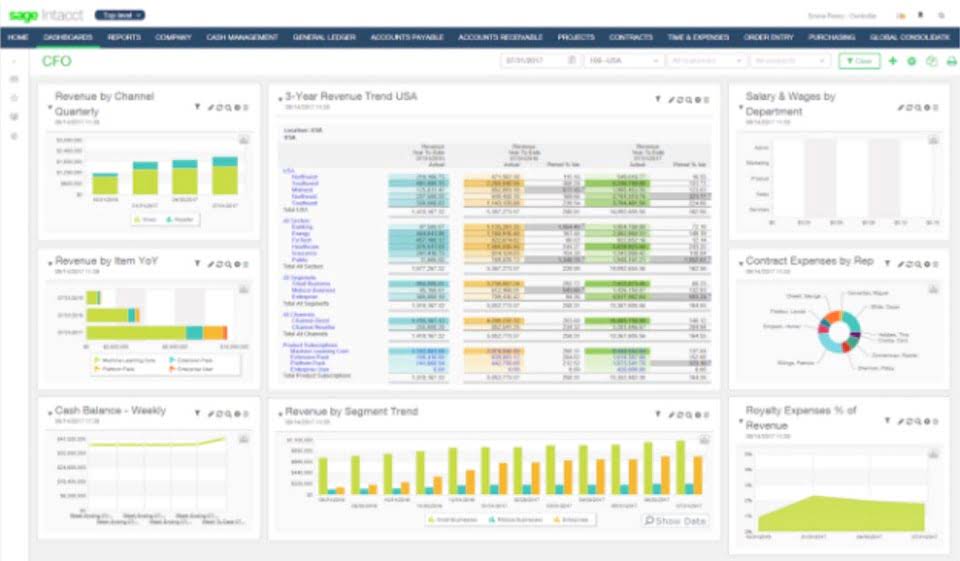
This unique approach allows individuals like Matthew, who are smart traders, to acquire additional skills and knowledge. What’s impressive is that this can be achieved despite Matthew’s busy schedule as a full-time working parent. Next, we’ll explore how AI is revolutionizing the accounting industry and what it means for the future of the profession. As AI continues to evolve, accountants will find their roles shifting towards more strategic and advisory tasks, making them even more valuable.
- Figure out what you want to achieve by integrating AI into the finance and accounting of your business.
- This approach will help businesses minimize risks and maximize the benefits of accounting AI.
- By using AI to analyze historical data and predict future trends, accountants can provide more informed and proactive advice to their clients.
- Artificial intelligence (AI) can perform various tasks related the accounting profession, such as data entry, analysis, and report generation.
Running an Accounting Firm Without Timesheets – My 5 Year Experience

Automatic updates on changes in financial regulations can be integrated into AI systems, allowing your business to remain compliant without dedicating time and resources to manually updating your procedures. Traditionally, auditors must collect online bookkeeping financial data from ERPs and other accounting systems. The more transactions a company makes, the more likely they will need to depend on a sample rather than analyze all of the data. AI is popular, with 79% of tax and auditing professionals reporting that AI benefits their work.
- This automation reduces the workload on human accountants, allowing them to focus on more strategic activities like financial analysis and advisory services.
- Whether you want to expand your CRM capabilities or build AI workflows, we can help you.
- You can make informed decisions about resource allocation, budgeting, investment strategies, and more with advanced predictive analytics.
- A Future of Work survey conducted in 2022 by the Virginia Society of CPAs among its members found that about 50% used workflow software.
- The drawbacks of AI include ethical concerns about bias and privacy, security risks from hacking, and a lack of human-like creativity.
- Tools like Botkeeper use automation to handle bookkeeping tasks, allowing accountants to focus on more strategic activities.
What accounting and auditing challenges does AI help overcome?
Consequently, businesses benefit from improved accuracy and efficiency in financial operations. By integrating AI benefits of ai in accounting into these areas, smaller accounting firms can improve their efficiency, reduce errors, and offer more strategic services to their clients. This not only helps them stay competitive but also allows them to focus on higher-value tasks that require human expertise. AI systems can consistently perform tasks with high accuracy, ensuring reliable financial data and reporting. This leads to more trustworthy financial statements and reduces the likelihood of costly mistakes. These bots can handle processes like data entry, invoice processing, reconciliations, and financial statement preparation.
- This resistance can slow down implementation and limit the overall effectiveness of AI.
- AI-powered software automates routine tasks like categorizing expenses, reconciling accounts, and generating financial reports.
- While the long-term benefits of AI in accounting can be significant, the high initial costs can be a barrier for many organizations, particularly smaller ones with limited resources.
- For instance, AI can analyze financial data to ensure that all tax regulations are met, reducing the risk of errors and penalties.
- «Why do you need approval levels when AI can be smart enough to identify when something should have a human review?» he asked.
- Dennis McGowan from the Center for Audit Quality highlights that AI can streamline processes but comes with risks that require careful human oversight.
Artificial intelligence in auditing: Leveraging benefits and avoiding risk

Incorporating AI into accounting processes requires strict adherence to industry standards such as the International Financial Reporting Standards (IFRS) and Generally Accepted Accounting Principles (GAAP). These frameworks provide guidelines that ensure consistency, accuracy, and transparency in financial reporting. For AI to be effective in accounting, it must be designed and programmed to follow these standards closely. Implementing AI in accounting comes with its own set of challenges, from data security concerns to the cost of implementation and the resistance from employees.

Related To Artificial Intelligence

Use AI to analyze financial data and generate insights with the help of AI-powered systems and tools. Machine learning algorithms can uncover hidden patterns and trends that might not be evident through manual analysis. AI simplifies tax compliance by automating the preparation and filing of tax returns. For instance, AI can analyze financial data to ensure that all tax regulations are met, reducing the risk of errors and Law Firm Accounts Receivable Management penalties.

